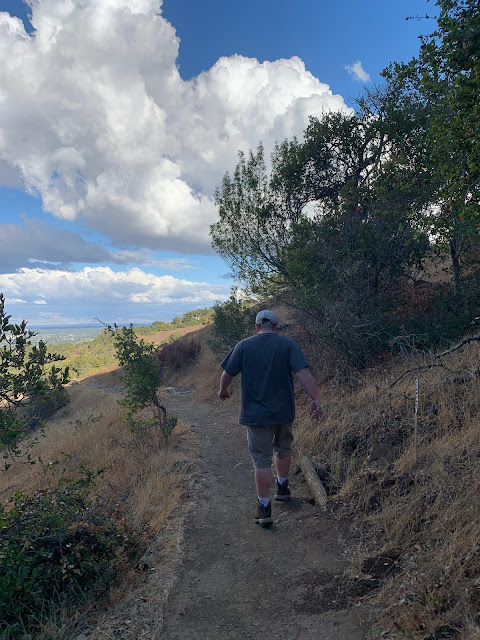Below is my comment as submitted for the July 2024 Interagency Autism Coordinating Committee meeting, which is centered on the topic of caregiving. (I hope it is somewhat coherent, as we are all currently riding COVID fever waves.) This issue really matters to me, because it is me. And I worry that the IACC tends to only hear from raging grievance parents.
I would like to thank the IACC for centering the concerns of caregivers like me. My adult autistic son is an excellent fellow who requires full-time care. My most desperate wish on this topic is that he, his peers, and our community’s families could have sufficient and appropriate services, because too many autistic people and caregivers are floundering or in outright crisis due to lack of appropriate supports. While our complicated lives can be good ones, for us things are often far harder than they should be.
To address this caregiving resource gap, we need to increase funding for autism and disability supports, and streamline herculean application processes. Even well-informed caregivers don’t always know about available benefits, and/or don’t realize they can appeal if their application is rejected. Relatedly, we also need to take action on how caregivers—mothers especially—experience a hit to their lifetime earnings due to disproportionate care obligations, or have to leave the workforce entirely.
 |
| Me and Leo on the trail, as usual. |
Aside from improving services, one of the most straightforward ways to improve caregivers’ lives is to help them understand the way their autistic people experience the world—different, yes, but also legitimate. We need to increase awareness of freely available autistic-informed caregiver guides like Start Here* by The Autistic Self Advocacy Network, which “cuts through myths and misconceptions and explains autism from an autistic perspective.”
We need to help caregivers understand that autism is inborn, meaning that trying to “cure” autism will not help their child one bit—though it will likely traumatize that child while warping their parents’ attitude towards them. Caregivers should be made clearly aware that the only thing pursuing an autism “cure” will do is make them victims of a mercenary autism pseudoscience industry.
To help arm caregivers with beneficial autism information, we need more culturally appropriate education materials. We need to make useful autism materials freely available to families who lack autism services due to insurance or financial hurdles, or who cannot access therapeutic and developmental professionals. Such materials can help caregivers learn to proactively support even non-diagnosed autistic people’s sensory, processing, socializing, repetitive, and language traits, and start gaining coping skills to participate in society—however that looks individually.
We need to help caregivers understand that disability is both common and normal. We really need autism caregiver versions of Stacey Park Milburn’s "Disability Doulas" to help ease people into the autism caregiving community. Many of my caregiver friends and I were traumatized after our own kids’ diagnoses, due to being “mentored” by parents who turned out to resent rather than understand their kids’ autism. Our caregivers deserve nurturing community connections, not isolating horror stories.
We need to help caregivers recognize that, per the DSM-5, every autistic person is by definition disabled and deserves supports. When caregivers don’t understand the disabling complexities of autism, they can fall for dangerous stereotypes such as second-guessing the very real support needs of autistic people who don’t have communication or intellectual disabilities. As a result, those caregivers’ autistic people may become hesitant to ask for crucial supports, and can become more likely to experience mental health crises or even suicidality.
When caregivers of autistic people who have a range of complex and intense support needs doubt their charges’ humanity and agency, and/or mistakenly conflate co-occurring conditions with autism, those caregivers can profoundly limit their autistic person’s quality of life. We need to encourage these caregivers to not give up on communication options and learning opportunities for their autistic people. We also need to help caregivers recognize when “autistic behaviors” are actually due to legitimate environmental or medical issues.
To improve the chances that caregivers can get the best care for their autistic people, we need to support autistic professionals, for their own well-being and also so we can have more of them available. The autistic professional insider perspective is crucial, as "Autistic people may be at risk for poorer health, and at least part of this is because of being misunderstood by the neurotypical majority." The more caregivers can rely on autistic-informed care, the better their and their autistic person’s lives will be.
We also need to stop overlooking our significant population of autistic caregivers. So many parents find out they are autistic only after their child is diagnosed, and being an autistic parent is hard for many reasons, including competing access needs (kids are loud, messy, and disruptive to routines) and because other parents may not click with you. Autistic caregivers deserve more, and more tailored, supports.
We to help caregivers understand that ABA therapy, though touted as a “gold standard,” has a questionable evidence base, largely misunderstands the needs of autistic children, and that autistic adults who have been through ABA often report deep trauma. Caregivers who are forced to employ ABA need to know that they can continue to advocate for their child.
We need to help caregivers break though misconceptions about education and community: Inclusive education can work, and segregated settings compound isolation not just of our autistic students but of our autistic adults. Caregivers need to be able to make informed choices about where their autistic people live and spend their days.
We need more, and more appropriate, day programs for our autistic adults, as too many existing programs refuse to take clients like my son who have “excessive behaviors.” This dearth of appropriate post-graduation services disadvantages everyone involved, can leave both autistic adults and their caregivers untethered and isolated, and forces many caregivers to leave their jobs.
Most of all, we need to recognize that when our autistic family members thrive, our entire families thrive. And that can’t happen if our caregivers don’t have the resources they need.
Thank you for your time.
Shannon Rosa
Senior Editor
Thinking Person’s Guide to Autism
www.ThinkingAutismGuide.com











